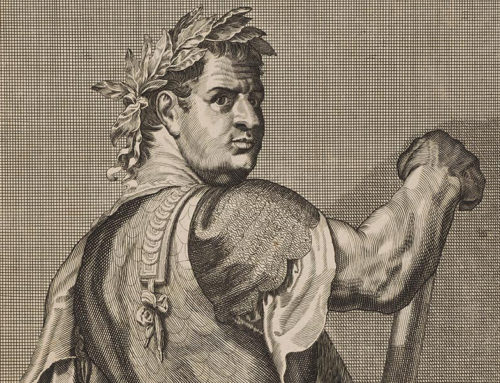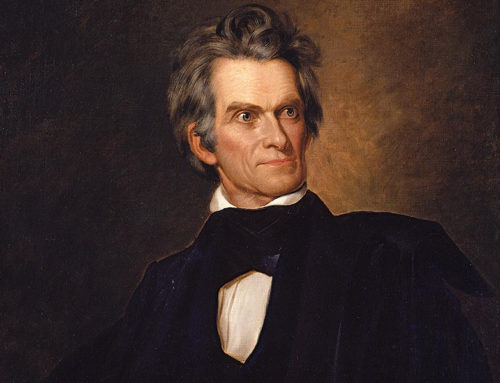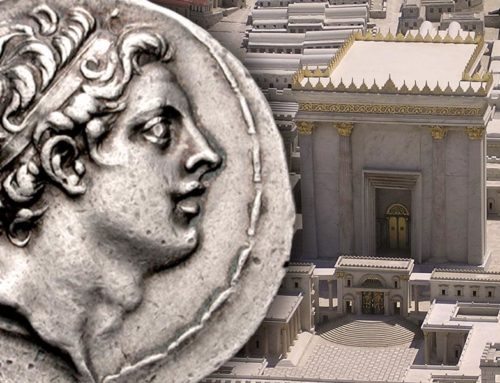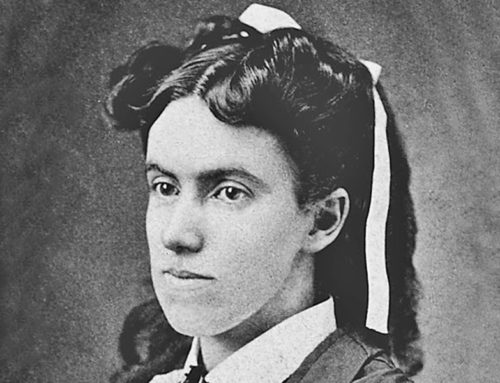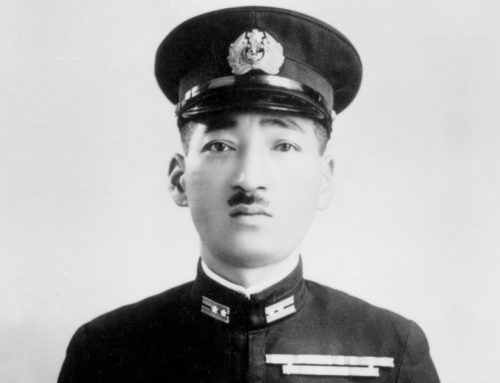

“By the word of the Lord the heavens were made and by the breath of his mouth all their host.” —Psalm 33:6
The Death of Sir Isaac Newton, March 20, 1727
![]() nglish poet Alexander Pope penned this couplet in regards to Sir Isaac Newton and his place in science and history:
nglish poet Alexander Pope penned this couplet in regards to Sir Isaac Newton and his place in science and history:
“Nature and nature’s laws lay hid in night
God said ‘let Newton be,’ and all was light.”
Sir Isaac Newton has been declared, over and over again, the greatest contributor to science in all of man’s history. His only competitor was Albert Einstein, who kept a portrait of Newton on his own wall. Newton himself declared in a letter to fellow philosopher and scientist Robert Hooke, “If I have seen further, it has been by standing on the shoulders of giants.” By anyone’s measure, Isaac Newton transformed mathematical studies, especially calculus, the study of astronomy, optics, and classical mechanics. Some contemporaries and others through history claimed that Sir Isaac Newton was the most brilliant man in history. He died March 20, 1737.
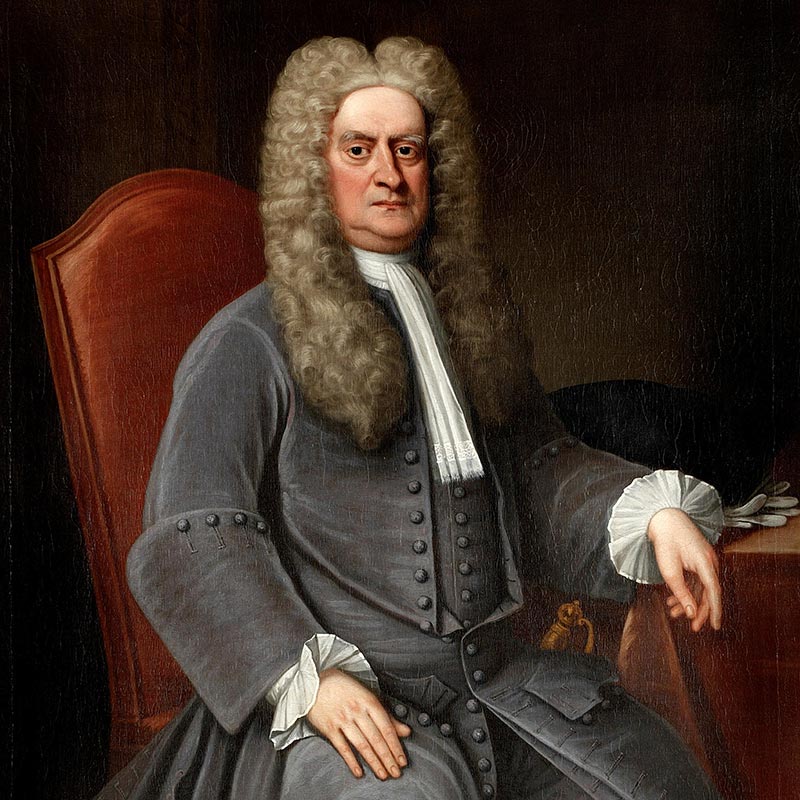
Sir Isaac Newton (1643-1727)
Isaac Newton was born in 1643 in Lincolnshire, England, three months after the death of his father and in the midst of the English Civil War. His mother remarried and had three more children, but Isaac remained with his maternal grandmother during his formative years. His mother married a minister with a well-stocked library and Isaac made good use of it when he visited her. After his mother was widowed for the second time, he withdrew from school to run the family farm to provide for her and his three siblings. She remarried, and Newton was able to attend Trinity College, Cambridge because of his proven intellect — but had to work as a servant there to pay tuition.
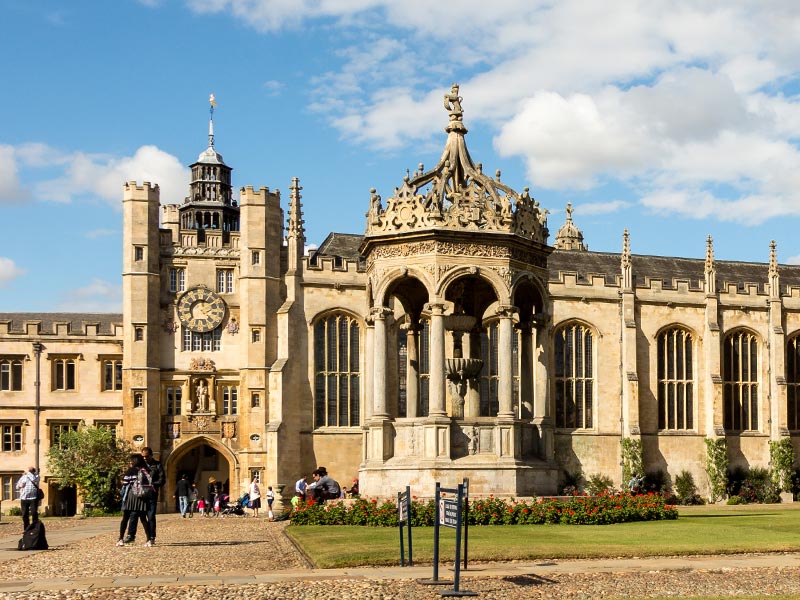
Cambridge University’ Trinity College, founded in 1546 by King Henry VIII
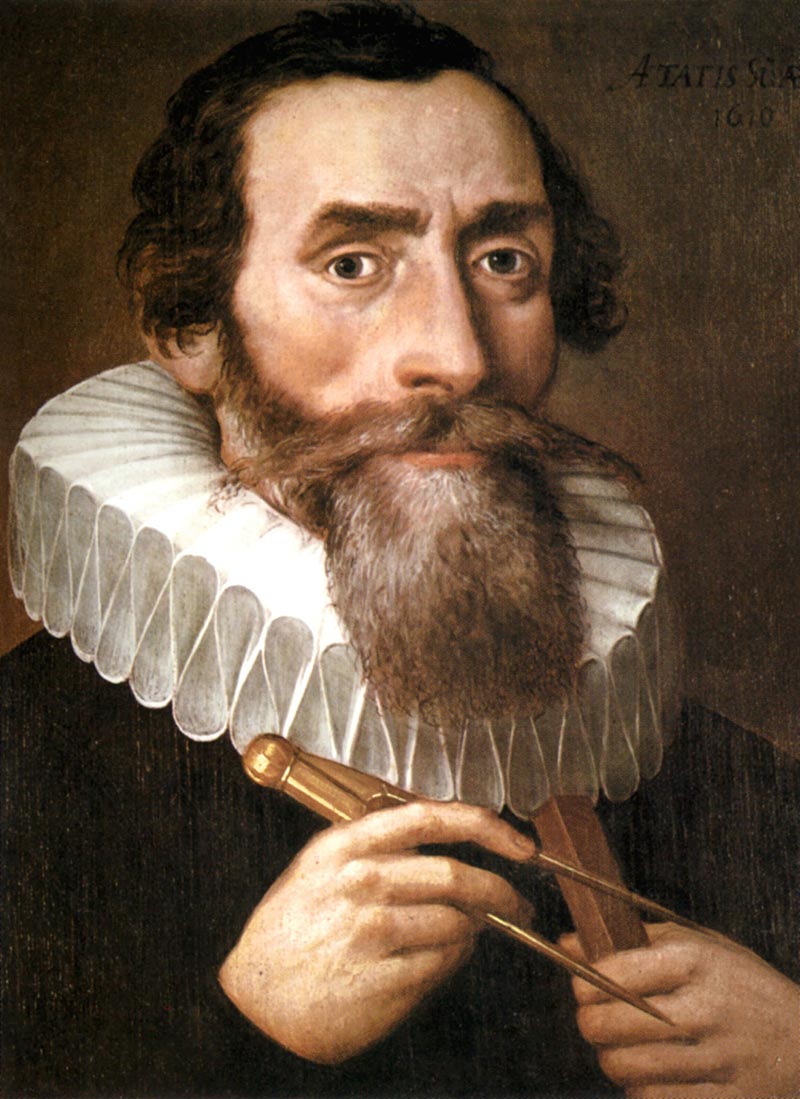
The work of Johannes Kepler (1571-1630) influenced Newton’s ideas
King Charles II had been restored to the English throne by the time Isaac Newton passed through Trinity and began work in the Masters’ Degree program in the 1660s. The universities shut down when the plague reared up again in the cities. Newton returned home to the farm and set to work on calculus and astronomical theories he had explored after reading Johannes Kepler, Galileo, Descartes, and other philosophers and scientists who were questioning the academic dogmatism of Aristotelian-based education. When Newton returned for his MA program, he was quickly recognized for his advanced math theorems and scientific ideas, and was made a fellow at Trinity and, after his MA, a member of the Royal Society.
Newton developed a new mathematical calculus that revolutionized math and science. He did so at the same time German scientist Gottfried Leibniz did the same, using a different method. His study of optics resulted in the first telescope using curved lenses. His experiments to prove his theories pushed the boundaries of science in various directions. Newton’s possessed great knowledge of the Bible and its importance in understanding God’s created order. In order to continue teaching, the law required he be ordained in the Anglican Church, a political as well as religious hurdle. He did not believe politics should be involved in scientific investigation and resisted ordination because he did not hold to all of the Anglican tenets. The King granted him a special dispensation to continue his work without the ordination.
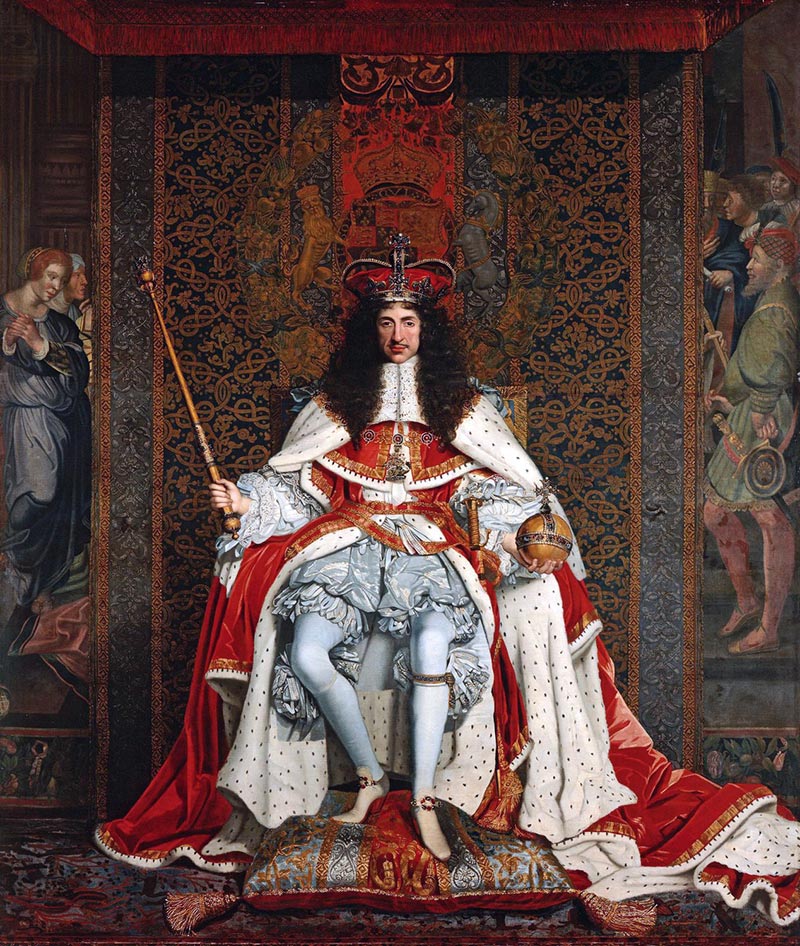
King Charles II (1630-1685)
Historians have tried to put Sir Isaac Newton outside the Christian faith. He has been accused of denying the Trinity and other basic Christian doctrines in a quest to divorce science and Christianity. Perhaps Newton should just speak for himself
“This most beautiful system of the sun, planets, and comets, could only proceed from the counsel and dominion of an intelligent Being…. This Being governs all things, not as the soul of the world, but as Lord over all; and on account of His dominion He is wont to be called “Lord God” Παντοκράτωρ or “Universal Ruler…. The Supreme God is a Being eternal, infinite, absolutely perfect.”
Newton also affirmed Jesus Christ and the Holy Spirit to be God; he affirmed the teaching of the Anglican 39 Articles several times in his life.

Newton’s own first edition copy of his Philosophiae Naturalis Principia Mathematica with his handwritten corrections for the twentieth edition
Newton’s major written work The Principia Mathematica is still considered one of the most brilliant mathematics works of all time. His achievements, persecution, difficulties, and trials are a matter of the historical record. His attitude toward such events in his life was expressed in these words:
“Trials are medicines which our gracious and wise Physician gives because we need them; and the proportions, the frequency, and weight of them to what the case requires. Let us trust His skill and thank Him for the prescription.”
Sir Isaac Newton died in 1727 and is buried in Westminster Abbey.
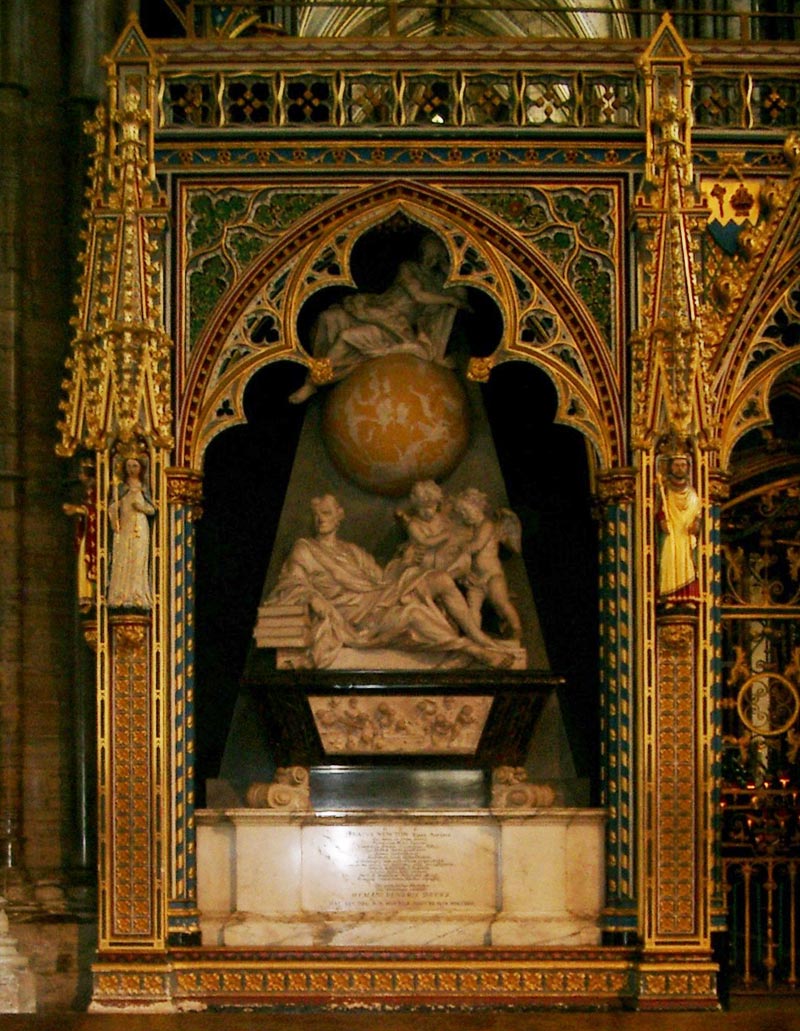
Newton’s tomb monument in Westminster Abbey


